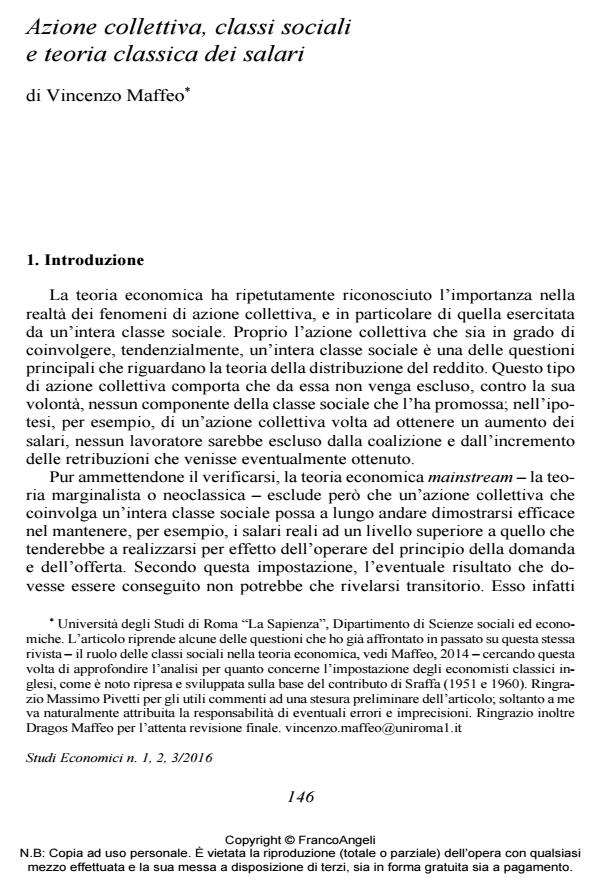Azione collettiva, classi sociali e teoria classica dei salari
Journal title STUDI ECONOMICI
Author/s Vincenzo Maffeo
Publishing Year 2017 Issue 2016/118-119-120
Language Italian Pages 21 P. 146-166 File size 219 KB
DOI 10.3280/STE2016-118009
DOI is like a bar code for intellectual property: to have more infomation
click here
Below, you can see the article first page
If you want to buy this article in PDF format, you can do it, following the instructions to buy download credits

FrancoAngeli is member of Publishers International Linking Association, Inc (PILA), a not-for-profit association which run the CrossRef service enabling links to and from online scholarly content.
Collective actions exerted by social classes play a crucial role in the theory of wages advanced by the classical economists and, at the same time, do not conflict with their notion of competition (free competition), According to the classical economists and Marx the conflict for the distribution of income does not involve only wage bargaining, but also the influence on institutions and social conventions, a distinctive ground of collective action. This is even more clear if we take into consideration present-day societies, which are characterized by great development and complexity of the institutions that condition the conflict for the distribution of income.
Keywords: Collective action, Competition, Classical theory, Marginalist theory, Income distribution, Social classes
Jel codes: A10, B12, B13, B40, D33, D41, E02, E24, E25
Vincenzo Maffeo, Azione collettiva, classi sociali e teoria classica dei salari in "STUDI ECONOMICI " 118-119-120/2016, pp 146-166, DOI: 10.3280/STE2016-118009